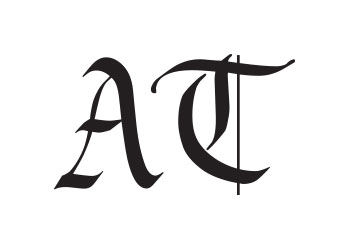Brussels, Belgium – NATO’s chiefs of defense met here today (May 17) to assess the alliance’s current and future work and to form advice and recommendations for their nations’ political leaders, who will convene here next week.
Marine Corps Gen. Joe Dunford, the chairman of the Joint Chiefs of Staff, represented the United States at the meeting.
At a news conference following the meeting, Gen. Petr Pavel of the Czech army, chairman of the NATO Military Committee, said the military chiefs examined the situations confronting the alliance and formulated their recommendations and guidance.
“Translating political objectives into military reality is at the core of the work we do,” Pavel said. “What is also crucial is that the military advice we provide is clear, concise and, importantly, able to deliver the desired strategic effects.”
Counter-ISIS Coalition
NATO heads of state and government – including President Donald J. Trump – will meet next week here to examine the chiefs’ recommendations. NATO already is involved in fighting terrorism. All of the NATO nations individually are members of the coalition arrayed against the Islamic State of Iraq and Syria. Official NATO membership in the coalition fighting ISIS will be one of the key topics for the heads of state and government meeting, Pavel said.
The chiefs also examined ways to further progress on projecting stability from NATO to neighboring countries in North Africa and the Middle East. This includes moves for stability in the western Balkans and in Iraq, the general said.
The chiefs also discussed the alliance’s Resolute Support mission in Afghanistan. The NATO commander of the mission – US Army Gen. John W. Nicholson – has recommended increasing the number of NATO personnel in the train-advise-assist mission in the country in 2018 and beyond. About 13,000 alliance service members are in Afghanistan, including about 9,000 Americans.
NATO needs a flexible and conditions-based approach to military actions in Afghanistan, Pavel said. “The chiefs of defense emphasized their long-term commitment to train, advise and assist the Afghan national defense and security forces,” he said. “The Afghan forces are facing a tough security environment, and they continue to be tested, but they continue to endure. It is unquestionable that a stable Afghanistan is in everybody’s interest and not just for regional stability. NATO will continue to support all initiatives which will help to achieve these objectives.”
Changing Posture, Enhancing Capabilities
US Army Gen. Curtis M. Scaparrotti, NATO’s supreme allied commander for Europe, said the alliance members must do more to ensure a Europe that is whole, free and at peace. The alliance is changing its posture and its mindset and is enhancing its capabilities to respond to the evolving nature of conflict, he said.
“We are adapting the alliance to respond to different approaches to modern warfare that is extremely complex, potentially vast in scale and intensity,” he said. “We continue to work as allies to achieve this transition.”
Scaparrotti emphasized the need for unity within the alliance. “National, bilateral and collective alliance efforts must be integrated and mutually reinforcing,” he said. “This is fundamental to our success.”
And the NATO nations are responding. The general ticked off a number of initiatives that show the unity of the alliance, including the enhanced forward posture units in the Baltics and Poland, the air policing effort, the very-high-readiness task force, and operations in Romania and Bulgaria as just a few examples. He also noted that NATO nations are spending more on national forces – increasing readiness and capabilities.
Long-Term View
Scaparrotti said the alliance cannot sacrifice the future for the present. “Looking forward we must maintain a strategic long-term view,” he added. “We must have a sense of urgency coupled by a sense of endurance. Simultaneously, we must find the right way to make the best use of our current capacities to secure allies for challenges we face.”
The alliance must be flexible and fast, Scaparrotti said. “Our instruments need to offer us flexibility and utility across applications is critical, and we must be based on a requirement in terms of both quality and quantity,” he said. “NATO is charged to be ready to respond to the new and continually evolving security environment. We must continue to set conditions and invest now to ensure European security in the future.”
Tejinder Singh, Editor, India America Today & White House Correspondent



